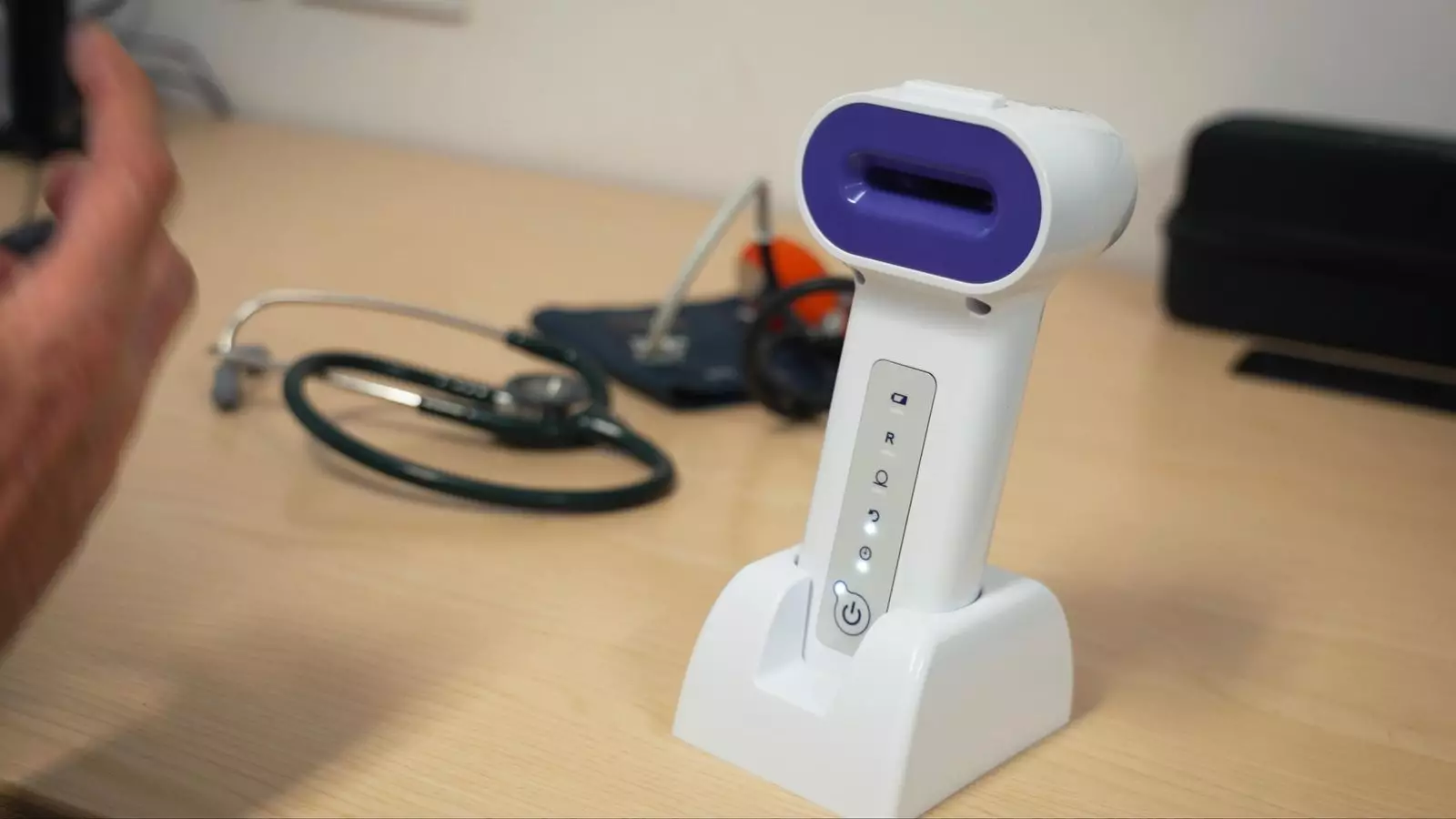Chronic Obstructive Pulmonary Disease (COPD) is a hidden threat that impacts around 3 million individuals in the UK, yet alarmingly, two-thirds of these people are unaware they are affected. As the second leading cause of emergency hospital admissions, COPD underscores the importance of early diagnosis and treatment. However, the traditional methods of diagnosing this debilitating condition often resemble a bureaucratic gauntlet, relegating patients to long waits for confirmation that can stretch from weeks to months.
The gold standard of COPD diagnosis has been the spirometry test, a procedure that requires a significant time investment from both patient and healthcare provider. Patients endure forced exhalation tests that can extend well beyond half an hour. Frustratingly, access to these tests is exacerbated by the need for specialist training in designated healthcare hubs, further entrenching disparities in care.
AI and the Quest for Answers
Enter the N-Tidal Diagnose, a handheld device poised to shake up this outdated status quo. This revolutionary technology not only offers a rapid testing alternative but also positions healthcare professionals to intervene more swiftly. Instead of lengthy appointments, patients can simply stroll into their doctor’s office and receive a definitive diagnosis in under five minutes. This shift towards immediacy is monumental, allowing practitioners to initiate treatment almost instantaneously.
As Dr. Simon Rudland, a GP from Suffolk, states, “It completely changes the whole pathway.” Currently, patients often find themselves oscillating between misdiagnosis and treatment delays, leading to further deteriorations in health. The N-Tidal Diagnose allows doctors to sidestep this frustrating cycle and administer appropriate therapy without unnecessary delays.
The Human Experience: Colin Best’s Journey
The human element of this transformation cannot be overstated. Consider Colin Best, a 67-year-old resident of Stowmarket, whose experience brings a personal dimension to the statistics. Colin spent a grueling year undergoing various diagnostic tests, including spirometry multiple times, fraught with the exhaustion and frustration that so many COPD patients encounter. “It took me a year to convince them there was something seriously wrong,” he lamented.
Can one begin to fathom what that feels like from Colin’s perspective? Lacking swift diagnostics can lead not just to health complications, but also emotional distress, disrupting life at its core. In contrast, the N-Tidal Diagnose offers an almost instantaneous glimmer of hope, making it easier for patients to grasp their health situation and begin treatment sooner.
Transforming Healthcare: The Bigger Picture
The implications of the successful deployment of N-Tidal Diagnose extend beyond the individual patients—it represents a paradigm shift for the entire healthcare system, particularly within the underfunded NHS. With over 2.5 million recorded patient breaths analyzed via AI, the potential for advanced machine learning to discriminate between various cardio-respiratory conditions—including asthma, heart failure, and lung cancer—saves not just valuable time but also critical health resources.
Moreover, the training required for medical staff to utilize the device is minimal—only ten minutes. In an age where the skill bottleneck has plagued the sector, this efficiency could lead to widespread adoption, drastically reducing hospital admissions related to unmonitored COPD flare-ups—an occurrence that currently sees one in eight patients facing the emergency room.
A Future That Holds Promise
As the N-Tidal Diagnose navigates through regulatory approvals in the EU and prepares for rollout, one can only hope that this innovation is embraced on a wider scale. The transformation of COPD diagnosis through AI has the potential to make healthcare not only more efficient but also more humane. Confronting an unseen epidemic with cutting-edge technology will empower patients and practitioners alike.
The future of healthcare lies in such innovations—ones that prioritize swift, accurate diagnosis and compassionate care over outdated and cumbersome procedures that prolong suffering. Hence, as we witness this substantive change, we must advocate for more technologies like N-Tidal Diagnose to be integrated into our healthcare systems—because the health of millions should never be a secondary concern.

Leave a Reply